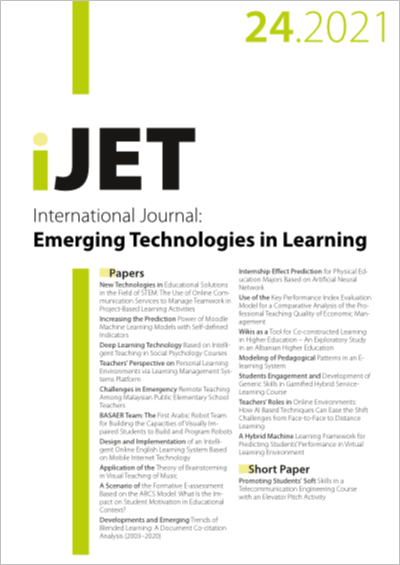Increasing the Prediction Power of Moodle Machine Learning Models with Self-defined Indicators
DOI:
https://doi.org/10.3991/ijet.v16i24.23923Keywords:
Machine Learning, Learning Analytics, Online EducationAbstract
Starting with version 3.4 of Moodle, it has been possible to build educational ML models using predefined indicators in the Analytics API. These models can be used primarily to identify students at risk of failure. Our research shows that the goodness and predictability of models built using predefined core indicators in the API lags far behind the generally acceptable level. Moodle is an open-source system, which on the one hand allows the analysis of algorithms, and on the oth-er hand its modification and further development. Utilizing the openness of the system, we examined the calculation algorithm of the core indicators, and then, based on the experience, we built new models with our own indicators. Our re-sults show that the goodness of models built on a given course can be significant-ly improved. In the article, we discuss the development process in detail and pre-sent the results achieved.
Downloads
Published
2021-12-21
How to Cite
Fauszt, T., Bognár, L., & Sándor, Ágnes. (2021). Increasing the Prediction Power of Moodle Machine Learning Models with Self-defined Indicators. International Journal of Emerging Technologies in Learning (iJET), 16(24), pp. 23–39. https://doi.org/10.3991/ijet.v16i24.23923
Issue
Section
Papers
License
Copyright (c) 2021 Tibor Fauszt, László Bognár

This work is licensed under a Creative Commons Attribution 4.0 International License.



